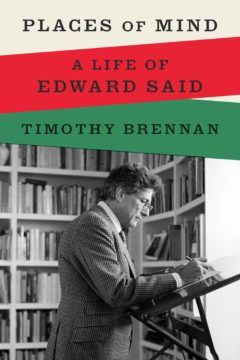 Jane Hu in Bookforum:
Jane Hu in Bookforum:
THE FIGURE OF EDWARD SAID might not appear to need much rescuing. Seventeen years after his untimely death from leukemia, almost all his books remain in print. His groundbreaking Orientalism (1978), considered the founding text of postcolonial studies, has been translated into over thirty languages. More than forty books have been written on Said, not to mention the one memoir, Out of Place (1999), written by Said himself. New reflections on his work are published each year, ranging from tributes to critiques, in academic journals and mainstream outlets alike. Meanwhile, Said’s concepts have become so canonical that they appear almost intuitive. Terms like “Orientalism,” “worldliness,” and “secular criticism” are now indelibly associated with Said’s name. Given his eminent political status during life, and his immanent cultural presence in death, to talk about Said these days is to risk contending with how much has already been said.
Said’s momentous influence has to do with how broadly his ideas circulated as well as how often they were denounced. A Palestinian exile who spent most of his life in America, Said straddled many worlds, as an academic, teaching literature at Columbia University, and as a public intellectual, writing on topics ranging from classical music to US foreign policy. It was his remarks on the Middle East, however, and Palestinian-Israeli relations especially, that drew the most ire, and often from all sides.
More here.
